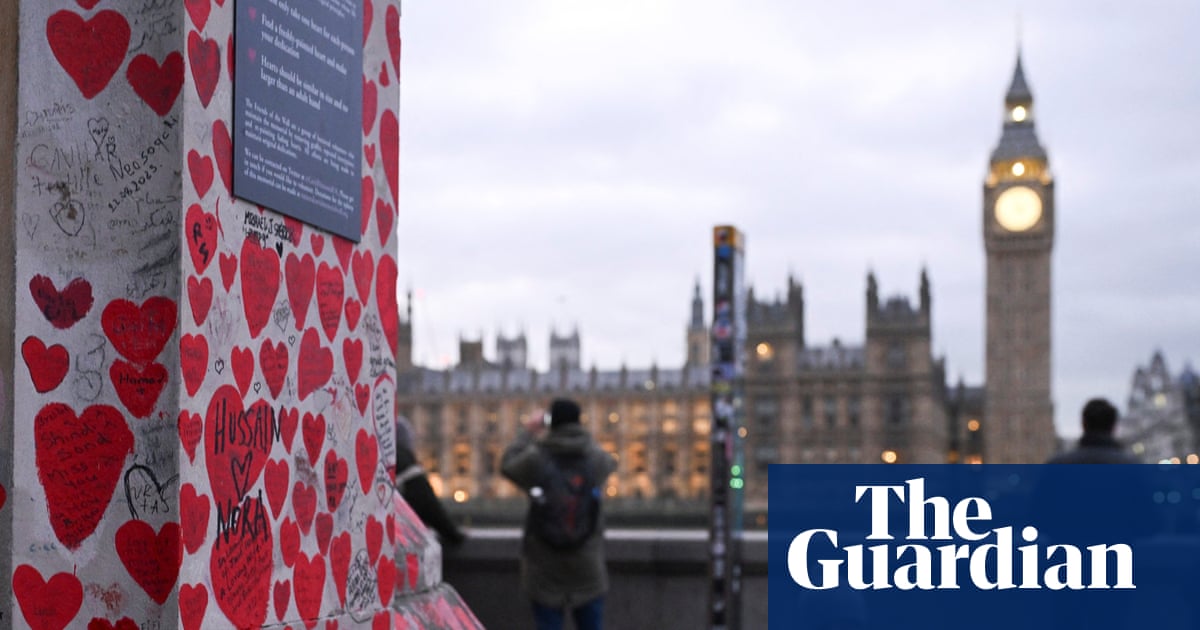Covid-bereaved families have called for Boris Johnson to lose access to public funds and said they will pursue all legal options for personal accountability after a damning report into his handling of the pandemic.
The families said they wanted all privileges Johnson received as a former prime minister – including his ministerial pension, his place on the privy council and access to the public duty costs allowance – to be withdrawn.
“His actions during the pandemic amount to one of the gravest betrayals of the British public in modern history. His decisions, delays and refusal to listen to warnings cost tens of thousands of lives that could and should have been saved,” Covid-19 Bereaved Families for Justice UK said in a statement.
“He must be held accountable. We are not asking for an apology. We are asking for consequences. Boris Johnson should have no role in public life and no further entitlement to public funds.”
The second report from the public inquiry into the pandemic published on Thursday found Johnson’s government had acted “too little, too late”, and that locking the country down a week earlier in March 2020 could have saved about 23,000 lives.
The inquiry, led by the retired judge and crossbench peer Heather Hallett, found he had “repeatedly changed his mind on whether to introduce tougher restrictions and failed to make timely decisions”.
It also said he had presided over a “toxic and chaotic culture” in Downing Street that hampered decision-making, and that he had “intentionally fostered conflict and a chaotic working environment”.
Criticism was also levelled at the leaders of the devolved nations, but Johnson was the most severely rebuked for his actions.
As a former prime minister, Johnson is allowed to claim as much as £115,000 a year from the public duty costs allowance. He claimed the full amount in 2024-25.
The statement by Covid-19 Bereaved Families for Justice UK said: “It is intolerable that bereaved families are expected to subsidise the lifestyle of the man whose decisions led to the deaths of our loved ones. That must end.”
The campaign group, which has about 7,000 members from across the UK, also said it would pursue “all available legal options to seek personal accountability for Johnson’s decisions during the pandemic”.
“Now that the inquiry has spoken, there must be accountability,” it said. “While our focus has always been on learning lessons to save lives in the future, individual accountability must be part of delivering justice.
“Justice for those we lost means real consequences for those who failed them, and we will not stop until that justice is delivered.”
skip past newsletter promotion
Our morning email breaks down the key stories of the day, telling you what’s happening and why it matters
Privacy Notice: Newsletters may contain information about charities, online ads, and content funded by outside parties. If you do not have an account, we will create a guest account for you on theguardian.com to send you this newsletter. You can complete full registration at any time. For more information about how we use your data see our Privacy Policy. We use Google reCaptcha to protect our website and the Google Privacy Policy and Terms of Service apply.
after newsletter promotion
The former cabinet minister Michael Gove apologised on Friday for mistakes the government made during the pandemic, but defended Johnson over the claim he fostered a chaotic atmosphere in Downing Street.
“Can I just take an opportunity to apologise to all those who lost loved ones during the pandemic and many others who made huge sacrifices, who will feel, I’m sure, a sense of, not just grief, but understandable anger as they read some of the conclusions in this report,” he told BBC Radio 4’s Today programme.
“I want to, on behalf of the government and also the Conservative party, apologise for mistakes that were made during that period.”
He rejected some of the report’s findings, saying that while locking down earlier would have been “more prudent”, it was a “leap” to claim it would have saved 23,000 lives.
He also disagreed that there had been a toxic and chaotic working environment. “I do certainly think there were moments when voices were raised, words were used, attitudes were struck that were far from ideal, but the business of government during a crisis can’t be carried on in the manner of a Jane Austen novel,” he said.
